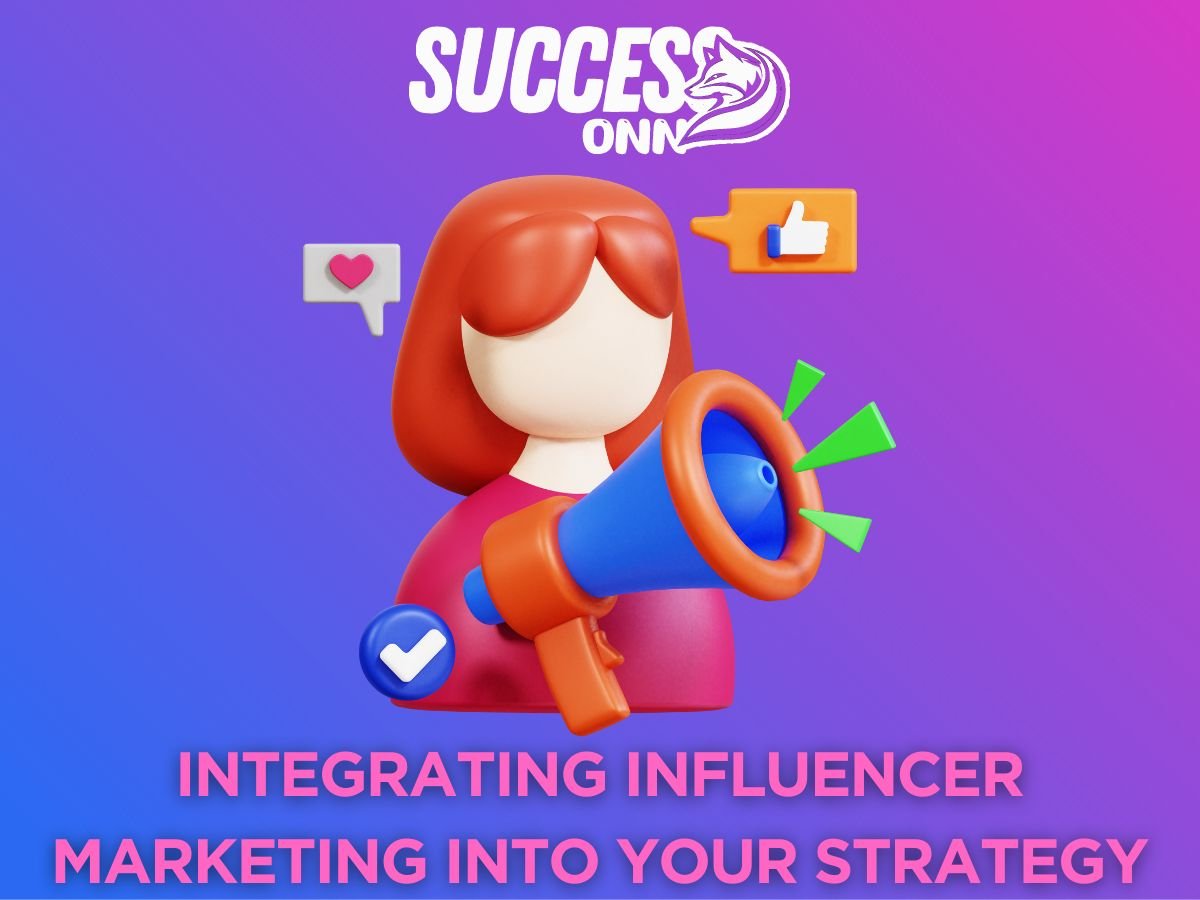Understanding Influencer Marketing
Defining Influencer Marketing
Influencer marketing is a type of marketing strategy that involves collaborating with individuals who have a significant influence over potential customers on social media platforms. These individuals, known as social media influencers, typically have a large following and are considered experts or trendsetters in a specific niche.
In influencer marketing, brands partner with influencers to promote their products or services to a target audience. This collaboration can take the form of sponsored content, product reviews, or endorsements. By leveraging the social media presence and credibility of influencers, brands can reach a wider audience and build trust with consumers.
One of the key aspects of influencer marketing is the focus on creating authentic and engaging content that resonates with the influencer’s audience. This approach helps brands connect with consumers in a more meaningful way and drive engagement and sales. Additionally, influencer marketing allows brands to tap into the creative expertise of influencers, who can provide unique insights and perspectives that resonate with their followers.
Overall, influencer marketing has become a powerful tool for brands to connect with consumers, build brand awareness, and drive sales. By incorporating influencer collaborations into their marketing strategy, companies can effectively reach their target audiences and achieve their specific goals in a more authentic and engaging way.
Advantages of Influencer Marketing
Benefits of Influencer Marketing
In today’s digital age, leveraging the reach and influence of social media influencers has become a critical component of any successful marketing strategy. So, what are the advantages of influencer marketing?
1. Increased Reach and Engagement
Partnering with social media influencers allows brands to tap into their extensive follower base, reaching a broader audience than traditional marketing methods alone. Influencers can swiftly amplify a brand’s message and drive higher engagement rates among potential customers.
2. Authenticity and Credibility
Consumers are becoming increasingly wary of traditional advertising methods, preferring authentic recommendations from individuals they trust. By collaborating with influencers who resonate with their target audiences, brands can infuse authenticity and credibility into their marketing campaigns.
3. Targeted Marketing
Identifying the right influencers enables brands to target specific demographics and niche markets effectively. With the help of influencers who align with their brand values and target audience, marketers can tailor their messages to resonate with potential customers on a more personal level.
In conclusion, influencer marketing is not just a passing trend but a powerful tool that can significantly impact a brand’s visibility, customer engagement, and overall marketing success. By integrating influencer collaborations into their marketing strategies, companies can stay ahead in the ever-evolving digital landscape.
Challenges in Influencer Marketing
One major challenge in influencer marketing is ensuring that the chosen social media influencer aligns with the brand’s values and target audience. It’s vital to carefully select influencers whose content strategy and personal brand resonate with the brand’s identity and goals to effectively reach potential customers.
Moreover, managing an influencer campaign can be complex, requiring a detailed marketing plan that outlines specific goals and objectives. Coordinating influencer collaborations, especially with the rise of micro-influencers, demands a clear communication strategy to ensure the message reaches the intended consumer base.
Measuring the success of an influencer campaign is another hurdle in influencer marketing. Marketers need to analyze engagement data, such as the number of followers and reviews, to evaluate the impact and ROI accurately. Understanding consumer behavior and trends through quantitative analysis and tracking consumer sentiment can help brands refine their influencer strategies for the best results.
Additionally, as the influencer space continues to evolve, staying updated on industry trends and making data-driven decisions based on academic research is crucial. Brands must adapt their approach to fit the changing landscape of social media platforms like YouTube and navigate the competitive landscape to build brand integration effectively.
In conclusion, while influencer marketing can be a powerful tool for brand building, navigating the challenges of selecting the right influencers, measuring success, and staying relevant in the ever-changing social media landscape are necessary for a successful influencer marketing campaign.
Best Practices in Influencer Marketing
Optimal Strategies in Influencer Marketing
The best practices in influencer marketing involve leveraging the power of social media influencers to effectively reach target audiences and potential customers. When devising an influencer campaign, it is crucial to first establish specific goals and clear objectives aligned with the overall marketing plan of the brand.
One optimal strategy is to collaborate with influencers whose content aligns with the brand’s values and target market. Marketers should consider the number of followers an influencer has, as well as their engagement data, to ensure the partnership will yield the best results. Choosing the right influencer, whether they are macro influencers with a large following or micro-influencers with a more niche audience, is essential in driving brand integration and building a strong consumer base.
Furthermore, incorporating influencer collaborations into the brand’s content strategy can provide an inside look into the consumer behavior and preferences of their audience. By analyzing the impact of influencer campaigns through quantitative analysis and engagement metrics, brands can refine their communication strategy and optimize future collaborations.
Staying informed about trends in the influencer space, such as the rise of YouTube influencers or the increasing influence of micro-influencers, can be a prescient guide for companies looking to enhance their customer experience and brand building efforts. With the help of influencers, brands can create original and outstanding work that resonates with their specific needs and brand DNA, ultimately driving a significant increase in brand visibility and consumer engagement.
In conclusion, influencer marketing is a powerful tool that, when executed effectively and in line with the new PR frontier of integrating influencer marketing into the overall strategy, can lead to a huge increase in brand awareness and customer loyalty.
Enhancing Brand Awareness
How does influencer marketing help in increasing brand awareness among consumers?
In today’s marketing landscape, leveraging social media influencers has become a powerful tool for brands looking to enhance their brand awareness among consumers. By collaborating with influencers who have a substantial number of followers on platforms like YouTube and other social media platforms, brands can effectively reach their target audiences and potential customers in a more authentic and engaging way.
One of the key ways influencer marketing increases brand awareness is through the unique ability of influencers to create content that resonates with their specific audience. Through influencer collaborations, brands can tap into the trust and loyalty that influencers have built with their followers, giving them an inside look into the brand and its products or services.
Moreover, influencers have a significant influence over consumer behavior, making them instrumental in shaping consumer perceptions and attitudes towards a brand. By partnering with influencers whose values align with the brand DNA, companies can create authentic and relatable content that speaks directly to the needs and preferences of their consumer base.
Furthermore, influencer marketing provides brands with the opportunity to generate engagement data and gather feedback from consumers through reviews and surveys. This valuable information can help marketers fine-tune their communication strategy and tailor their marketing plan to better meet the specific needs and preferences of their target audiences.
Overall, integrating influencer marketing into a brand’s content strategy can lead to a huge increase in brand awareness, as influencers have the ability to communicate the brand’s message in a way that resonates with consumers. By setting clear objectives and specific goals, brands can leverage influencer collaborations as part of their marketing funnel to build brand awareness, drive brand integration, and ultimately achieve the best results in reaching their target audiences.
Research Objectives in Influencer Marketing
Key Objectives of Research on Influencer Marketing
Research in influencer marketing aims to uncover the consumer behavior trends specific to social media platforms and their impact on brand building. By studying the effectiveness of influencer collaborations on customer experience and engagement data, marketers seek to develop a comprehensive content strategy that resonates with target audiences. Understanding the powerful tool that influencers represent in reaching potential customers is key to devising a successful marketing plan.
Moreover, research delves into the nuances of different types of influencers, from micro influencers to those with a huge increase in the number of followers. By analyzing the influencer space and their collaborations with retail brands or luxury brands, researchers can provide prescient guides for companies on how to best leverage influencers for brand integration. This may involve a quantitative analysis of engagement data and consumer base to determine the best results from an influencer campaign.
Academic research on influencer marketing often focuses on the specific goals set by brands and the clear objectives required to achieve them. Through survey results and reviews of past campaigns, researchers aim to offer an inside look into how influencers can help brands meet their specific needs and brand DNA. This original work contributes to the overall understanding of influencer marketing as a communication strategy and its place in the marketing funnel.
In conclusion, the research objectives in influencer marketing seek to provide a comprehensive understanding of how influencers can be a significant influence on consumer behavior, ultimately helping brands achieve their brand building and marketing plan objectives in the new PR frontier: integrating influencer marketing into your strategy.
Effective Strategies Recommendations
In the realm of influencer marketing, it is crucial for brands to devise effective strategies to maximize the impact of their influencer campaigns. Here are some key recommendations for ensuring the success of influencer collaborations within your marketing plan:
- Define Clear Objectives: Before embarking on an influencer campaign, outline specific goals that align with your overall marketing objectives. Whether it’s increasing brand awareness, driving sales, or enhancing customer engagement, having a clear direction will guide your influencer strategy.
- Identify the Right Influencers: Take the time to research and select social media influencers whose values, aesthetic, and audience align with your brand DNA. Consider factors such as the number of followers, engagement rates, and the relevance of their content to your target audience.
- Tailor Content to Specific Needs: Collaborate with influencers to create authentic and compelling content that resonates with their followers while also showcasing your brand in a natural way. Customizing content to fit the influencer’s style and voice can lead to more authentic and impactful sponsored posts.
- Focus on Micro-Influencers: While influencers with massive followings can offer broad reach, don’t overlook the potential of micro-influencers. These influencers often have a highly engaged and niche audience, making them ideal for reaching specific customer segments.
- Track and Analyze Performance: Utilize tools and metrics to measure the success of your influencer campaigns. Monitor key performance indicators such as engagement data, click-through rates, and conversions to determine the effectiveness of your strategy.
By implementing these recommendations and continuously refining your influencer marketing approach, you can harness the power of influencers to build brand credibility, reach new audiences, and drive meaningful results.
Measuring Effectiveness
Measuring the effectiveness of influencer collaborations is crucial for understanding the impact of influencer marketing efforts. Marketers use various key performance indicators (KPIs) to assess the success of influencer campaigns and determine the return on investment. One essential KPI is the number of followers that the influencer has on social media platforms such as Instagram, YouTube, or TikTok. This metric helps evaluate the reach of the collaboration and the potential customer base that can be exposed to the brand.
Engagement data is another vital KPI that reflects how well the audience is responding to the content created as part of the collaboration. Metrics like likes, comments, shares, and click-through rates provide insights into consumer behavior and interest levels. Marketers analyze this data to gauge the effectiveness of the influencer partnership in driving engagement and increasing brand awareness.
Furthermore, quantitative analysis of metrics related to website traffic, sales, and conversion rates can indicate the impact of influencer collaborations on actual purchase decisions. By tracking specific goals set at the beginning of the campaign, companies can assess whether the strategy has succeeded in meeting objectives and driving results.
Overall, a combination of quantitative and qualitative KPIs is essential for measuring the effectiveness of influencer collaborations in achieving marketing goals and building brand engagement. This data-driven approach provides valuable insights for optimizing future influencer marketing efforts and maximizing ROI.
The Future of Influencer Marketing
Future Trends in Influencer Marketing
As we look to the future of influencer marketing, several trends are expected to shape the landscape. One major trend is the shift towards ‘micro influencers’ rather than macro influencers. Micro influencers, with a smaller but more engaged audience, are proving to be valuable in reaching ‘specific needs’ of ‘target audiences’.
Another significant influence is the rise of ‘video content creators’, particularly on platforms like ‘YouTube’. Brands are leveraging the power of video content to connect with their ‘potential customers’ in a more engaging way. ‘Social media platforms’ continue to evolve, providing new opportunities for brands to collaborate with influencers and reach a wider audience.
Additionally, as ‘consumer behavior’ evolves, brands are expected to focus more on building ‘customer experience’ through influencer collaborations. ‘Authentic reviews’ and recommendations from influencers can greatly impact the perception of a brand among its ‘consumer base’.
Furthermore, with the continuous growth of influencer marketing, we can expect to see more ‘academic research’ and ‘quantitative analysis’ being conducted in the influencer space. Marketers are increasingly looking for data-driven insights to create effective ‘marketing plans’ and strategies that align with their ‘specific goals’.
In conclusion, influencer marketing is poised to remain a ‘powerful tool’ for brands looking to connect with their audience in a more authentic and engaging way. By staying abreast of these trends and leveraging the ‘new PR frontier: integrating influencer marketing into your strategy’, companies can achieve the best results in their marketing efforts.
Impact on Retail Revolution
How does influencer marketing contribute to the retail revolution through live streams and real-time engagement?
In today’s retail landscape, influencer marketing plays a crucial role in driving the retail revolution through live streams and real-time engagement. Social media influencers have become powerful partners for retail brands looking to connect with their potential customers in a more authentic way. By incorporating influencer collaborations into their content strategy, retail brands can reach their target audiences effectively and promote their products or services.
One of the key ways in which influencer marketing is transforming the retail industry is through the use of live streams on platforms like YouTube. Live streaming allows influencers to interact with their audience in real time, showcasing products, answering questions, and providing a more immersive customer experience. This direct engagement not only builds trust with the audience but also creates a sense of urgency that can drive immediate sales.
Moreover, influencers are able to provide an inside look into the products or services they are promoting, giving potential customers a better understanding of how the items fit into their lives. This transparency and authenticity are particularly important in today’s digital age where consumer behavior is heavily influenced by peer recommendations and reviews.
By leveraging influencers in live streams and real-time engagement, retail brands can tap into the huge increase in consumer time spent on social media platforms. This shift in consumer behavior presents a significant opportunity for brands to connect with their consumer base in a more meaningful way and drive sales through influencer marketing strategies.
In conclusion, influencer marketing is a powerful tool for retail brands looking to stand out in a crowded marketplace. By incorporating influencer campaigns with live streams and real-time engagement, brands can effectively reach their target audiences, drive sales, and stay ahead of the major trends shaping the retail revolution.
Role in Esports Industry
Opportunities for Influencer Marketing in the Esports Industry
The esports industry presents unique opportunities for influencer marketing due to its rapidly growing audience and the strong presence of social media influencers within the gaming community. Esports enthusiasts are highly engaged on social media platforms like YouTube, where they follow their favorite gamers and personalities. This presents an ideal landscape for brands looking to tap into this dedicated fan base through influencer collaborations.
Micro influencers in the esports space can have a huge influence on their audiences, often leading to more authentic connections with potential customers. By leveraging these content creators who are well-respected within the community, brands can effectively reach their target audiences with tailored messages that resonate with their specific needs and interests.
Esports influencers often have a deep understanding of their audience’s consumer behavior, allowing them to create content that aligns with the interests and preferences of their consumer base. This valuable insight can help marketers develop an effective content strategy that maximizes engagement and drives brand awareness.
Moreover, esports influencers can provide brands with an inside look into the gaming community, offering retail brands the opportunity to build brand integration that feels authentic and organic. This level of brand building can lead to a great impact on the overall customer experience, as fans are more likely to trust recommendations coming from influencers they follow and admire.
In conclusion, influencer marketing in the esports industry is a powerful tool that, when utilized effectively as part of their marketing strategy, can lead to best results in reaching and engaging with a highly passionate audience. By incorporating esports influencers into their marketing plan, brands can take advantage of this major trend and stay ahead of the curve in the ever-evolving landscape of digital marketing.






